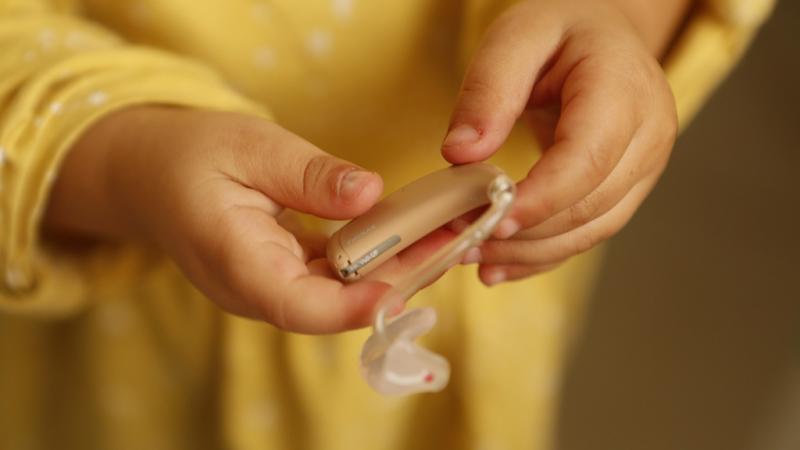Understanding Hearing Loss in Seniors and Hearing Aids

Hearing loss is a common problem in society. It's a serious problem for seniors giving them hard times having conversations with family, friends and even caregivers. Thanks to technology, seniors struggling with hearing loss can now use hearing aids and devices. Here's a brief guide to supporting adult hearing problems and hearing aids.
Age-Related Hearing Loss (Presbycusis)
Approximately one in three seniors between 65 and 74 have a hearing loss, and almost half of seniors older than 75 have difficulty hearing. However, some seniors don't usually want to admit their trouble with hearing.
Age-related hearing loss, or presbycusis, is commonly caused by aging but can also be caused by noise, disease and heredity running in families. It comes gradually as someone ages and often occurs in both ears, impacting their capabilities equally.
A senior with hearing loss may find it hard to hear speech or tolerate loud noise. Since it's gradual, someone may not realize they're losing their hearing ability. Seniors with hearing loss can use hearing aids and devices to improve their hearing ability.
Devices to Help With Hearing Loss
A doctor or hearing specialist can suggest a hearing aid or device to improve the senior's hearing capability. A hearing aid is a small, wearable electronic device that amplifies certain sounds and enables a person to hear them naturally. They enable a more clear understanding of speech, providing overall improvement in a person's communication ability.
Hearing aids require a doctor's prescription or an audiologist. They must also be professionally fitted for proper function. There are various types and designs of hearing aids and devices with different technical features, including:
- Behind-the-ear (BTE) hearing aids
- In-the-ear (ITE) hearing aids
- Digital hearing aids
- Bluetooth hearing aids
- Analog hearing aids
People with hearing loss can also use other hearing devices, such as:
- Alerting devices: Systems that work with smoke detectors, doorbells and alarm clocks to send visual signals or vibrations. Examples are flashing lights.
- Mobile apps: Some people use a mobile phone vibration to alert them to things and calls.
- Cochlear implants: Electronic hearing devices for individuals with severe hearing loss don't work for all hearing loss types.
- Assistive-listening devices include audio induction (hearing loop), infrared system, FM system, personal amplified system and Bluetooth systems.
The right hearing aid or device for seniors depends on their hearing loss and severity.
Can You Connect Hearing Aids to Your Phone?
You can connect Bluetooth hearing aids to your phone, also known as pairing. Thanks to technology, the latest hearing aid innovations have Bluetooth technology, making it easier to connect to your phone. All you need is a Bluetooth-enabled phone and Bluetooth-enabled aid.
Learn here how to connect hearing aids to your phone. You may encounter slight differences in the process depending on your phone's model and the model of your hearing aids. However, the steps to pair a phone and a hearing aid with Bluetooth are fairly universal.
Endnote
Seniors suffer more from hearing loss conditions than the general population. If you or a senior you know suffer from hearing loss, it's important to seek specialist or professional advice. You may be advised to use a hearing aid or a compatible hearing device based on your type and nature or hearing loss.
More to Read:
Previous Posts:











